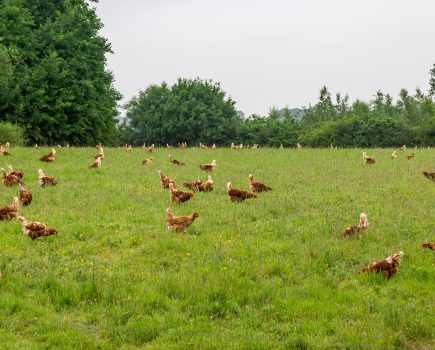Buying your chickens is one step, but what happens if they fall ill? Liz Shankland finds out about the shortage of specialist chicken vets
F orget going to the gym, playing golf or gardening. For a growing number of us, the best way of de-stressing after a hard day at work is spending some quality time with the chickens.
More and more people yearn to escape the rat-race and live the good life, but are unable to because of financial or family constraints. So what is the next best thing? Taking a tiny step towards self-sufficiency by getting a few hens to supply the household with eggs. The trend towards knowing where your food has come from has really elevated chicken-keeping from just an anoraky hobby to a pastime which has a whole host of commonsense benefits.
Chickens can be fairly low-maintenance animals; they don’t need a great deal of space, they don’t require the keeper to be bound up in legal red-tape, and there is no need to register with anyone as long s you don’t keep more than 50 at any time of the year.
Estimates suggest that there could be as many as 500,000 chickens being kept in back gardens, on allotments, and on smallholdings. The indications are that those numbers will continue to rise, as an increasing number of adults enjoy the experience of collecting freshly-laid eggs every day, while children discover the fun of keeping pets which are more productive and more interactive than gerbils or hamsters.
However, like any animal, a chicken can fall victim to a whole host of ailments and diseases. Your Chickens’ resident vet Victoria Roberts is honorary veterinary surgeon to The Poultry Club and has an encyclopaedic knowledge of avian problems. She has long been concerned that most veterinary practices in the UK do not have specialist poultry vets on the staff – because, traditionally, vet schools have concentrated on training ‘all-rounders’ – the veterinary equivalent of the human GP.
Although the number of specialist poultry vets remains comparatively small, the number taking a particular interest in backyard poultry keeping has been steadily increasing over the past decade. Victoria has been teaching special courses at the Liverpool Veterinary School since 1998, and estimates that as many as 1,500 vets have benefited from her knowledge and have graduated knowing the basics.
“Vets who graduated more than 10 years ago may not have been taught much of avian anatomy or diseases,” she explains. “These tend to be the ones who come to my lectures, as they are being presented on a regular basis with sick backyard hens. My lecturing around the country to vets has increased in the last couple of years, so there are more vets now who are confident about treating hens.
“The veterinary timetable is extremely full, with 35 hours of lectures a week, plus mandatory practical experience in the holidays. But the need for including minor species is now, thankfully, being addressed by some of the vet schools.
“Although a vet has to be able to pass exams on any species in order to qualify, after this vets follow their own interests to a certain extent. There are many more vets keeping their own chickens now, and this is an excellent route to knowledge. The training is out there for those that need it.”
Victoria insists that anyone considering keeping chickens should do their homework first and learn the basics about health and welfare. “Ignorance of husbandry is a major problem for beginners and thus a welfare issue for backyard hens,” she says. “It would be most beneficial if owners got themselves a good book before they got the hens. Impulse buying is a too-common trait.”
Specialist poultry practices exist, but mainly to deal with large-scale commercial operations rather than small domestic flocks. The St David’s poultry team, based in Exeter, has responded to pleas for help from individuals with just a few hens by setting up a new website, www.chickenvet.co.uk. The site offers veterinary advice on the most common health problems and offers a helpline for worried owners. In addition, the practice offers specialist training courses for staff from other surgeries and husbandry courses for the general public.
“Vets are lucky if they get one or two poultry lectures whilst at university, and we have found our courses are very much in demand from vets who want to find out more,” said Sandra Sampson from St David’s. “Our aim is to develop a network of ‘chicken friendly’ practices around the UK, so that anyone who has a problem with a bird will eventually be able to find a knowledgeable vet.”
One supporter of the work of St David’s is Jane Howorth of the British Hen Welfare Trust, which rehomes former commercial layers. “There is a growing trend of backyard hen-keeping in the UK, so it’s really important that vets are equipped to meet the increasing demand for hen care,” she explained.
“The BHWT is passionate about educating the public about how they can make a difference to hen welfare and is very proud to be associated with this initiative, designed to bring about a national veterinary facility to all of us who enjoy keeping backyard hens.”







